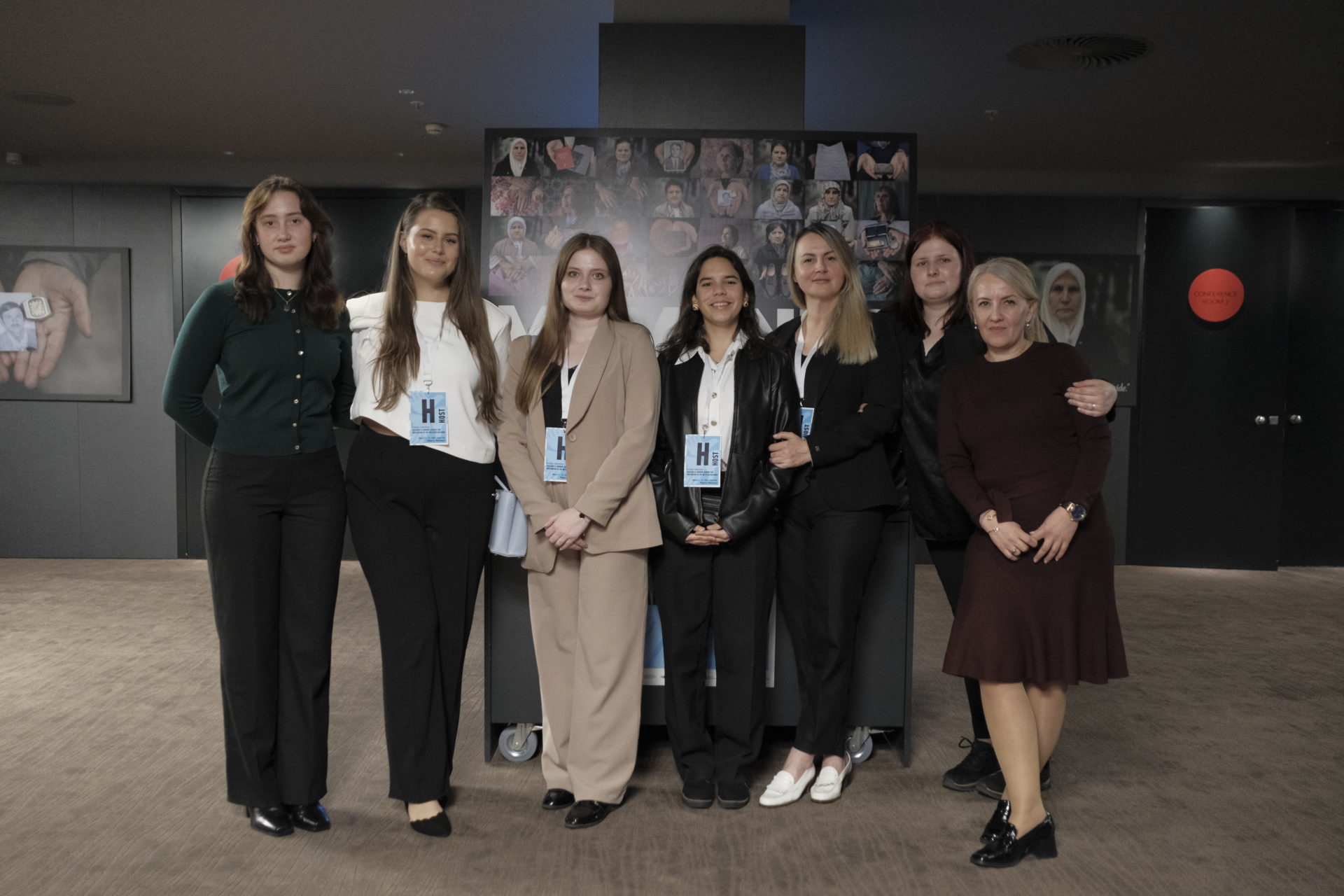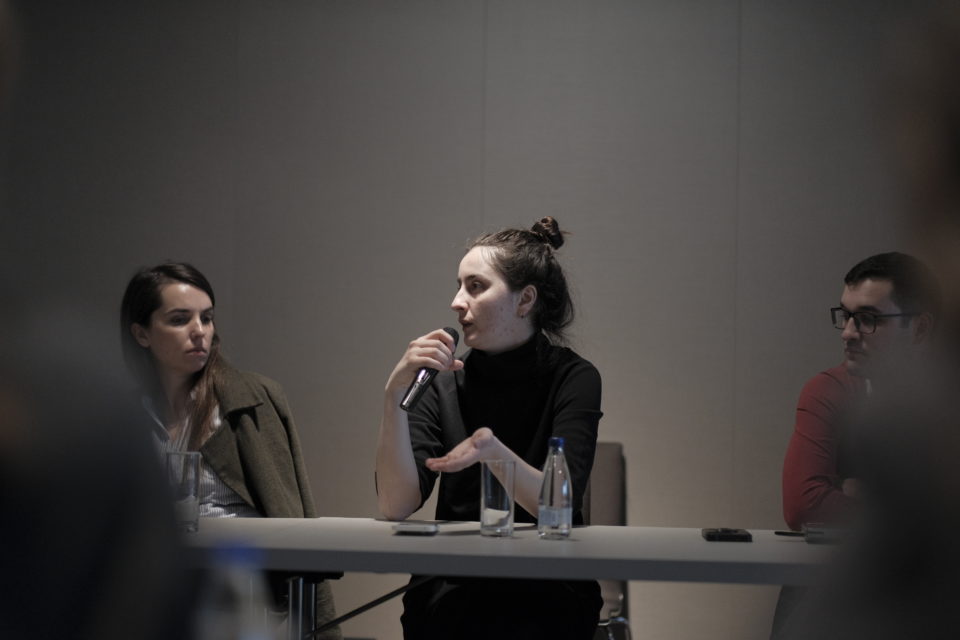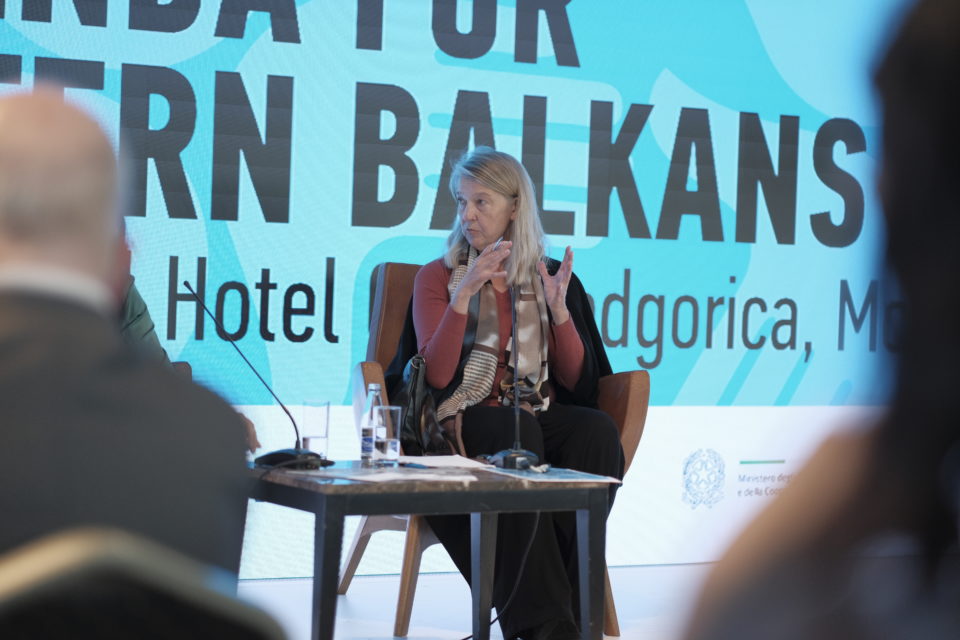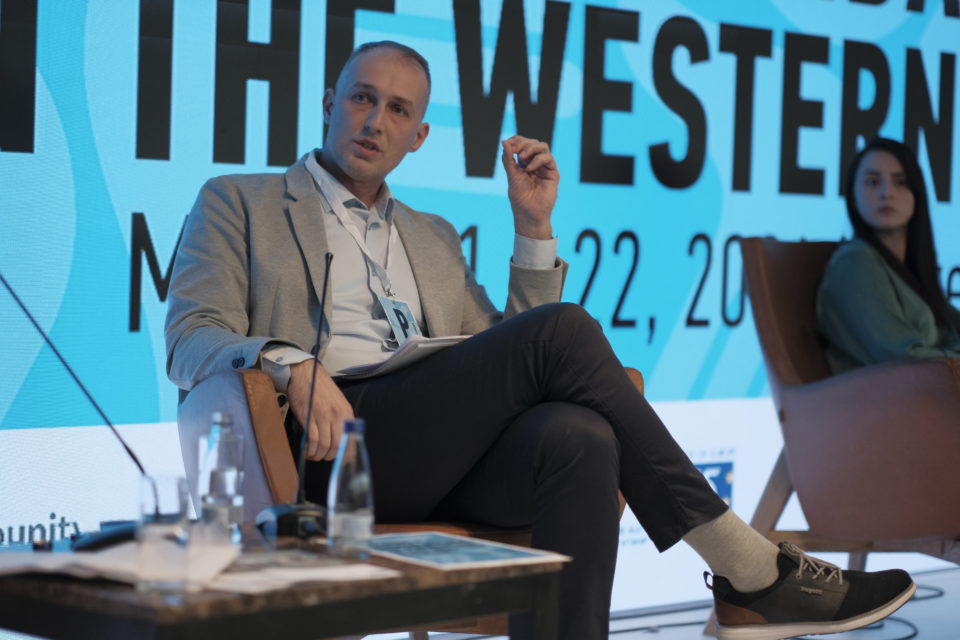
Digital platforms pose huge challenges to reckoning with the past in the Balkans. Experts in transitional justice from the former Yugoslavia sounded the alarm at the Post Conflict Research Center (PCRC)’s conference on atrocity prevention “Building a Common Agenda for Prevention in the Western Balkans”. Their alarm, expressed in the conference held on 21-22 March in Podgorica, Montenegro, was concerned with the issue of genocide denial and distorted narratives on social media.
Sofija Todorović, Director of the Youth Initiative for Human Rights (YIHR) Serbia, emphasized the need to adapt informational content that will be attractive and consumed on social media, especially as different countries offer different content.
“For example, in Serbia, when you browse the truth about Srebrenica and you click enter, the first 20 searches you will get will be very obscure things about genocide, including denialist websites. But when you do it in Bosnia, in Sarajevo you will get a completely different result. And these are the things that we really have to think about,” explained Todorović, adding that civil society organizations need to be creative in order for content to reach different audiences.

In her speech, she highlighted that the biggest challenge for civil society organizations comes when trying to present complex information in a short, simple manner. Todorović told the conference that this instinct can ultimately be a trap. Some facts can be easily communicated in bitesize content, such as statistics and very short statements, while more complex issues surrounding conflict require context.
As well as trying to counter the spread of misinformation and extremism, civil society organizations are also facing the challenge of educating users about algorithms and their impact on the content we consume, explained Todorović.
“If we think in the long run and leave our content on social media, then we had better find ways to address more layers of conflicts and victims from different sides, because people out there will just not get it and their only reaction will be gut reaction,” says Vesna Teršelić from Documenta – Center for Dealing with the Past in Croatia.

She explained the importance of content addressing multiple layers of conflicts as well as victims from different communities. This will, according to Teršelić, help combat misinformation and emotional reactions to content, rooted in oversimplified narratives. By minimizing such reactions, organizations would therefore be mitigating the risk of hate speech.
YIHR Serbia’s Todorović discussed the example of Serbia, where there is a mono-ethnic culture of memory, with militarism and the glorification of war criminals omnipresent in society. She said The Hague’s 2023 reversal of acquittals in the trial of Serbia’s former Head of Security, Jovica Stanišić, and former State Security official, Franko Simatović, was a watershed moment for Serbian society.
Addressing Low Media Literacy and Hate Speech
During the panel discussion, Mirza Avdić from the Center for Investigative Reporting (CIN), Bosnia and Herzegovina, expressed alarm at the low media literacy rate in Western Balkan society. Namely, what this means for identifying and responding to hate speech. He referred to the Reporting Diversity Network project (2020), which focuses on monitoring online hate speech in Albania, Bosnia and Herzegovina, Kosovo, Montenegro, North Macedonia and Serbia.

“In the last 20 months, we have noticed that we have 97 hate speech narratives in our online media in Bosnia and Herzegovina. Different types of hate speech through different mediums such as TV, websites, online publications and social media. Hate speech was mostly directed towards the topic of gender and ethnicity and also towards the migrant population. We noticed that the main actors in these narrative speeches are political leaders, key decision-makers and influencers,” said Avdić.
The concerns expressed by other panel interlocutors about navigating distorted narratives while addressing transitional justice go hand in hand with Avdić’s call for improved media literacy. .
Avdić emphasized, “Media literacy is something that we need to improve, especially among younger generations, who are still looking for their place in the media space.”
Furthermore, he links the prevalence of hate speech to low media literacy, suggesting that individuals may lack the critical thinking skills necessary to discern and reject hateful content online.
In conclusion, the panel underscored the urgent need to address low media literacy and combat hate speech in the Western Balkans. Speakers emphasized the need for targeted efforts to educate both journalists and the wider public on navigating complex narratives and identifying misinformation online. Social media demands brevity and simplicity, posing challenges to those seeking to convey nuanced topics. Therefore, simply providing information on social media may not lead to genuine understanding. By prioritizing media literacy initiatives and fostering critical thinking skills, stakeholders can work towards creating a more informed and inclusive digital landscape that guards against the spread of harmful narratives and promotes dialogue and understanding.
____________________________________





